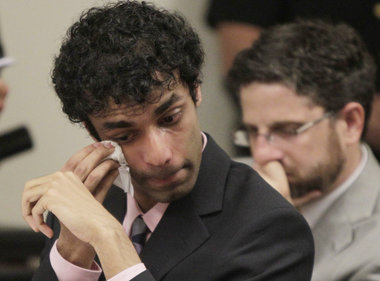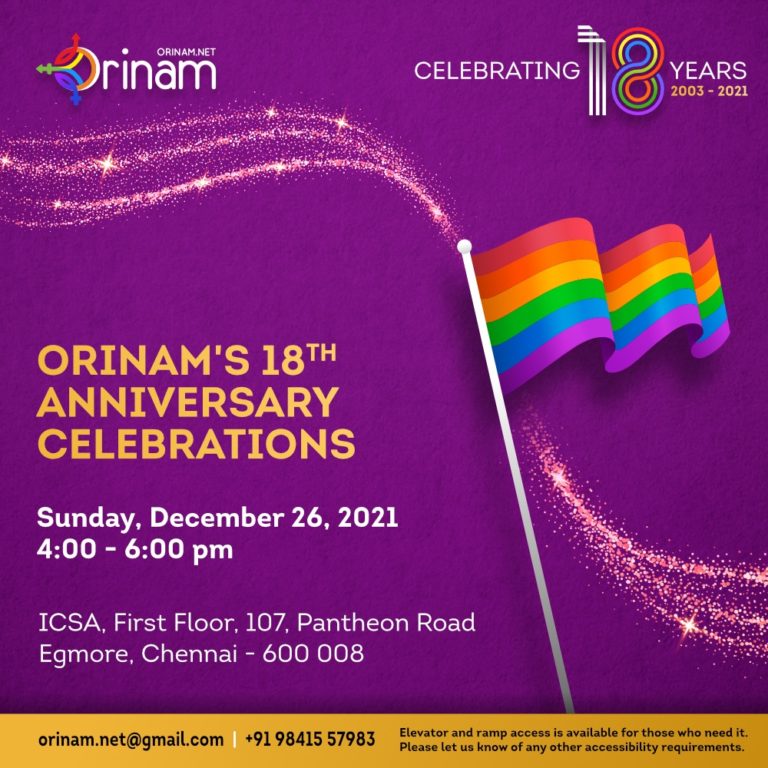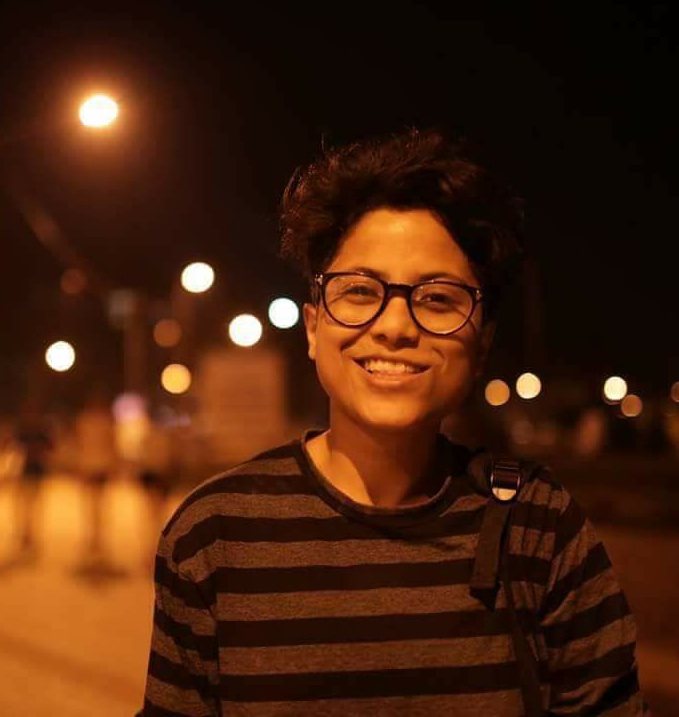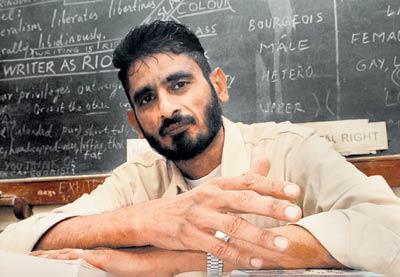Supreme Court hearings on Naz: Feb 15 2012
Today was the second day that the Supreme Court heard arguments in the appeal against the Delhi High Court judgment decriminalizing same sex relations between consenting adults.
The case was first taken up on Monday and did not come up on Tuesday because some other matters, which were presumably seen as more urgent, were listed first. I think we’re realizing that this is how the case will be heard. This bench has decided they will hear it, and they confirmed that today. But they will hear it along with other matters, which on any given day might have more priority, so the 377 case will usually be heard towards the end of the day.
In other words, this case is going to be stretched over quite a bit. With so many petitioners against us, all of whom will get their hour or two in court, and then the petitioners on our side, we are looking at a lot of court hours. So the case is on, but lets not expect anything soon, leave alone a verdict.
This may seem excruciating, and there will be plenty of uncomfortable moments in the early part when our opponents will have centre stage. We will be hearing a lot of stuff that is illogical, insulting, demeaning or just confused. But we will get our own turn, and, as one of our opponents lawyers rather aggrievedly pointed out today, all the big names are on our side. So the arguments will start sounding better in time.
We must also be careful not to start reading too much into what the judges say or speculating on what they are thinking. It is really hard not to do so, since I think speculating on the minds of judges is what a large part of the legal profession obsesses about, and this is passed on to us. But I feel there is little point doing this because (a) once the Bench is fixed there is nothing we can do about it, and (b) it undermines what judges are there to do, which is hear with an open mind and decide as arguments are presented to them.
And in today’s arguments I think you can see this. This Bench is not pretending to be very knowledgeable about homosexuality, but they are willing to discuss it, and this may involve discussing it in very basic ways that seem uncomfortable and naïve to many of us, but this is what they are meant to do. This Bench seems to me to be feeling their way through what they are realizing is a complex and loaded issue, but which they have decided to go ahead with.
OK, enough bhashan from me and I won’t be doing this on a regular basis. I’ll try and post basic summaries, as I get them from sources, of what happened in the day’s arguments. But I just want to make a general caution about reading too much into what is being said, or over-reacting to any particular argument. This is going to be a long drawn out process, with lots of ups and downs, and we should just be prepared for that.
Notes for Supreme Court hearings on appeals against Naz Foundation case on 15.02.12. The Bench consists of Justices Singhvi and Mukhopadhyay
The day started with counsel for Voices Against 377 raising the preliminary argument that private individuals could not challenge the High Court’s declaration, but the Bench said they would heart these arguments later. The petitioners against the judgment are clearly going to be heard first.
Praveen Agarwal, the counsel for Suresh Koushal continued with his arguments. From what I gather, these simply involved quoting from large parts of the judgment and going over basic details, including the fact that the Ministries of Health and Home Affairs has given opposing affidavits in the Delhi High Court, with Health saying that retaining 377 comes in the way of their efforts (for HIV/AIDS education).
There was an interesting moment where the Bench asked Mr. Agarwal on what his client did to which he replied that he was a social spirited citizen and had retired and that he earned money through astrology. The Bench replied that this was a broad term and that almost all human beings were social workers. He asked the lawyer if his client predicted the future of people and said that usually astrologers did not know their own fate. He remarked that there was nothing certain in life except that one has to go back from where one comes. (I am getting the feeling that the Bench is not overly impressed with Mr.Koushal’s profession!)
Mr.Aggarwal continued going over all the reasons why the Delhi High Court decided that the homosexuality should not be criminalized between consenting adults, including references to judgments that touch on privacy issues, HIV/AIDS issues, WHO and APA Guidelines showing almost unanimous medical and psychiatric opinion that homosexuality was not a mental disease, the 172nd Law Commission Report which recommended the deletion of s.377. He further stated that the HC while dealing with Article 14 of the Constitution concluded that there was no nexus between section 377 and the purpose of the section, which was to protect the morals of children and women.
Mr Agarwal continued in this vein for a while, and judging from this basic report I am wondering which side he is appearing for since he seems to be restating all the arguments in our favour. But finally he came to his point which seems essentially to say that all this is very well, but the rights conferred under Art 21 which included the right to privacy could be curtailed for the general public good. His basic point seemed to be that we should be discussing what were the reasonable restrictions to be allowed on this issue, and whether s.377 fell under them. Not very surprisingly perhaps the Bench finally asked Mr.Agarwal to take some more time to frame his arguments properly.
The Bench decided around here to get a bit more proactive in asking for information. It asked the petitioner – `what is 377? Does it take care of homosexuality?’ What are the subjects therein? In one case it could be construed as an offence, in others it may not. Is it justified to strike it down? The Bench asked Mr Agarwal to read out the section and explain which portion of the law was read down as ultra vires.
The Bench then decided to call on another lawyer for the petitioners. I am told that the best known among them is Mr Sharan, the counsel for the Delhi Child Welfare Committee to argue. This is, in a way, not a surprise, since the Delhi Child Welfare Committee comes from one of our most determined and long term opponents and was always one of the more serious petitions.
The Bench asked Mr Sharan whether carnal intercourse could be considered unnatural and if a person who showed that his acts were natural could escape from being prosecuted under the section. When the Bench noted that in 1860 (when the Indian Penal Code was formulated) medical science did not talk of homosexuality, Mr Sharan replied that it was a discovery, not an invention, and that this was like asking a young boy how he survived before oxygen was discovered.
The Bench asked Mr. Sharan what the meaning of “against the order of nature” was. Mr Sharan replied that nature recognised only carnal intercourse between man and woman and did not recognize carnal intercourse between men and men, women and women, and with animals. The Bench wanted to know why animals were covered under this section and Mr Sharan replied that bestiality, homosexuality and lesbianism were all considered unnatural.
The Bench, again seeming to trying to get to the basics in the case, asked Mr Sharan what the meaning of homosexuality was. Mr. Sharan replied that it was sex between two men. The Bench asked if carnal referred to something specific, and wanted case law on this. Mr. Sharan said that as far as the opinion of society was concerned there was no doubt that homosexuality was against nature. The Bench asked `what is carnal intercourse? What is unnatural?’
The Bench wanted to know whether carnal intercourse had anything to do with procreation and non-procreation. Mr Sharan replied that it would include both procreation and non procreation. Mr.Sharan was going to refer to the dictionary meaning of carnal but the Bench said they wanted the legal meaning. The Bench pointed out that there were activities even amongst gays that might or might not attract 377. (I am not entirely sure if what is meant here is non-consensual activity, which would still be covered by 377, or if a more general point is being made that allowing consensual same-sex activities does not mean allowing absolutely any kind of such activities). The Bench noted that there was no discussion in the HC on what constitutes carnal intercourse.
The Bench continued to press Mr Sharan on the exact meaning of the HC verdict, and what relief it gave. The Bench said that they would properly analyse 377 and decide in the modern context to what extent it can be treated as against the constitution. The Bench asked for more information on 377 (they are surely going to get it during these hearings!)
The Bench then asked Mr Sharan to counsel his colleagues and then argue. Does this again show some doubt about the quality of the petitioners arguments? Mr Sharan then noted, in what seems a rather aggrieved way, that this was one of the rare instances where all the legal luminaries were on the other side. He said that he faced more interference from his side than the other side. What can this mean? Is he also annoyed by some of the people he’s with! Perhaps to cheer him up, the Bench said that Mr Sharan’s side were the legal luminaries of the future, and pointed him back to the case by saying that it wanted to hear more about the ingredients of section 377.
Mr Sharan then went back into action by arguing, as Mr.Aggarwal had done before, that basic rights could be subject to procedures prescribed by law. This is clearly going to be a major plank of our opponents, essentially saying that fundamental rights are fine, etc, but there are limits and these limits can be set by law.
The Bench, going back to examining the wording of s.377 asked who can tell what the `order of nature was’. Mr.Sharan replied that it had acquired a traditional meaning, but the Bench wasn’t having this vague answer and asked him to put down the meaning from Indian and foreign case law.
The Bench then brought up what is really one of the crucial points in this case. Whatever were the reasons for the law being framed in the mid 19th century, we are now in the 21st century and things have changed so perhaps the law should do so too. The Bench noted that the meaning of words have never been constant. Just in independent India we have traversed a period of 60 years and even constitutional interpretations have changed. But Mr.Sharan was not having this. He said flatly that the meaning of `natural’ was something that would not change, and this again is the crux of many homophobes arguments.
The Bench was skeptical about this, pointing out that there were test tube babies and surrogate mothers, so how would these fit terms like `order of nature’, `natural’ and `carnal intercourse’? And that really is the question that homophobes duck. They want to keep the matter focused on the unnatural gays, but basic science shows that nature can hardly be pinned down in such clear ways and their arguments have to be taken against a larger picture, which may show them to be quite weak. Still, Mr.Sharan doggedly stuck to insisting that `order of nature’ is something that is immutable and does not change with time.
Time was almost up then. The Bench then asked the parties how long they would take for arguments, but seems to have realized that this could take time. The Bench said that all parties that came to court would be given a chance to be heard and that they would hear the matter, as much as possible, on a continuous basis. The matter has been listed for Thursday, Feb 16, 2012.





